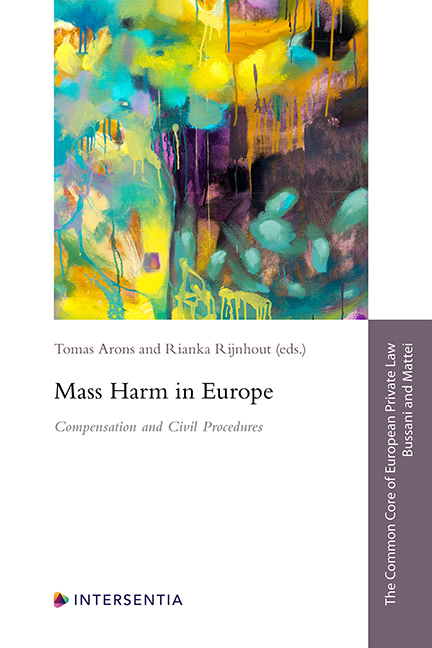Financing Mass Litigation in the US
Published online by Cambridge University Press: 03 April 2024
Summary
INTRODUCTION
This chapter reviews the financing of mass litigation in the US. It defines the problem as a subset of the problem of the financing of legal claims in the American private law system. After describing the history and economic logic of the contingent fee in the US, it examines how the adoption of the contingent fee affects the financing of class actions and multidistrict litigation in the US.
THE FUNDAMENTALS OF FINANCING LITIGATION IN THE US
Private law in the US is, in theory, grounded in an architecture of rights and remedies which reflect certain democratic and liberal values. There is a guarantee that the courts be open to all parties with standing in both state and federal constitutional law. Any person who genuinely believes that they have suffered a wrong at the hands of another may demand compensation from the responsible party without even filing a lawsuit. Of course, the putative wrongdoer is under no legal obligation to pay compensation until and unless there is an authoritative judgment from a court imposing that legal obligation. It is therefore well understood among those who study private law in the US that, in reality, legal claims sit on a ‘dispute pyramid’ in which volume stands in an inverse relationship with formality.
At the very base of the pyramid are claims made informally between potential plaintiffs and potential defendants before any formal lawsuit is filed (or even researched). Next up the pyramid are claims formally made by the filing of a lawsuit. There are far fewer of these than in the previous group, but they are accompanied by formal pleadings and, as a matter of law, if filed by a lawyer (as opposed to the party acting on their own behalf), reflect the lawyer’s genuine belief that the claim is well grounded in law and fact. Next up the pyramid are those claims which are abandoned or dismissed by a judicial ruling for procedural reasons. There are far fewer of these claims than in the previous group, obviously, and reflect judgment based on yet even more legal analysis than at the point of filing the lawsuit.
- Type
- Chapter
- Information
- Mass Harm in EuropeCompensation and Civil Procedures, pp. 51 - 60Publisher: IntersentiaPrint publication year: 2023



